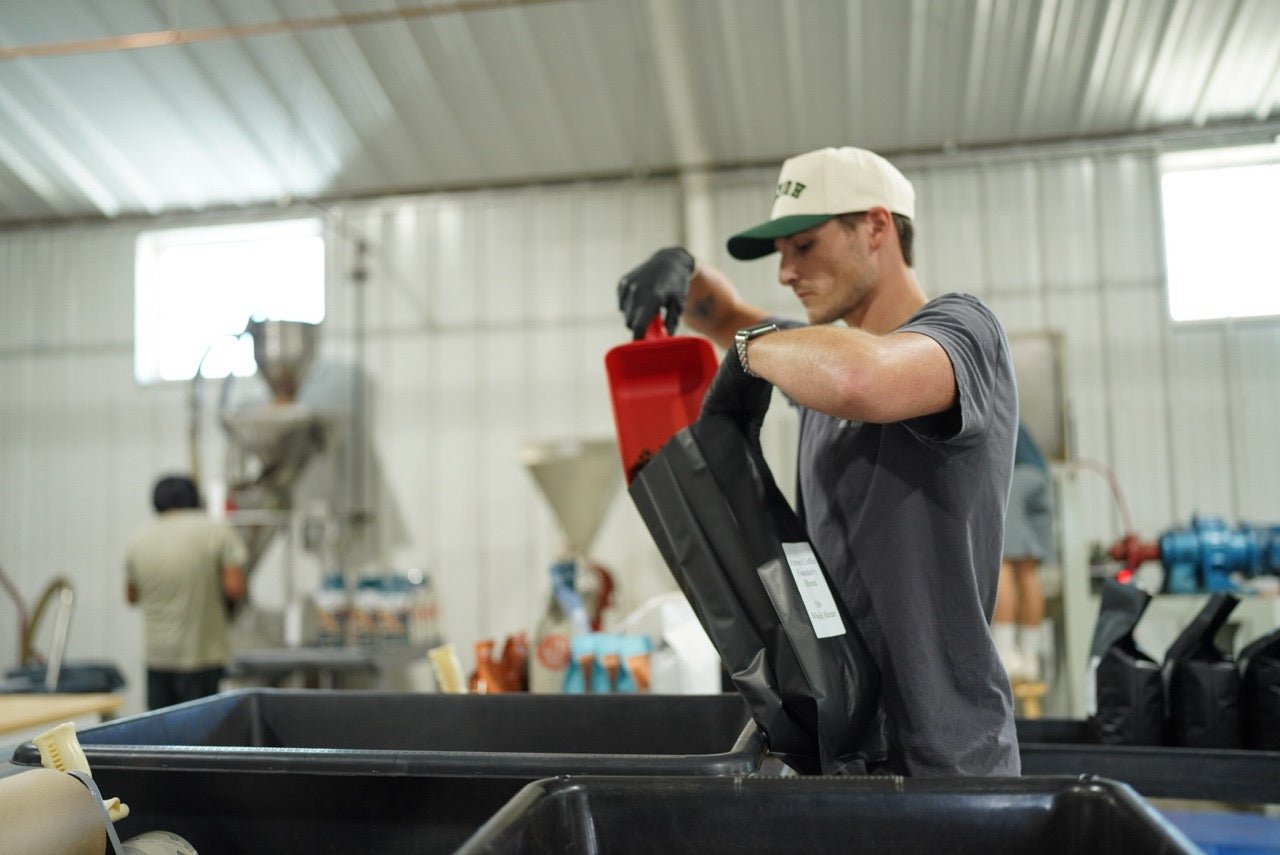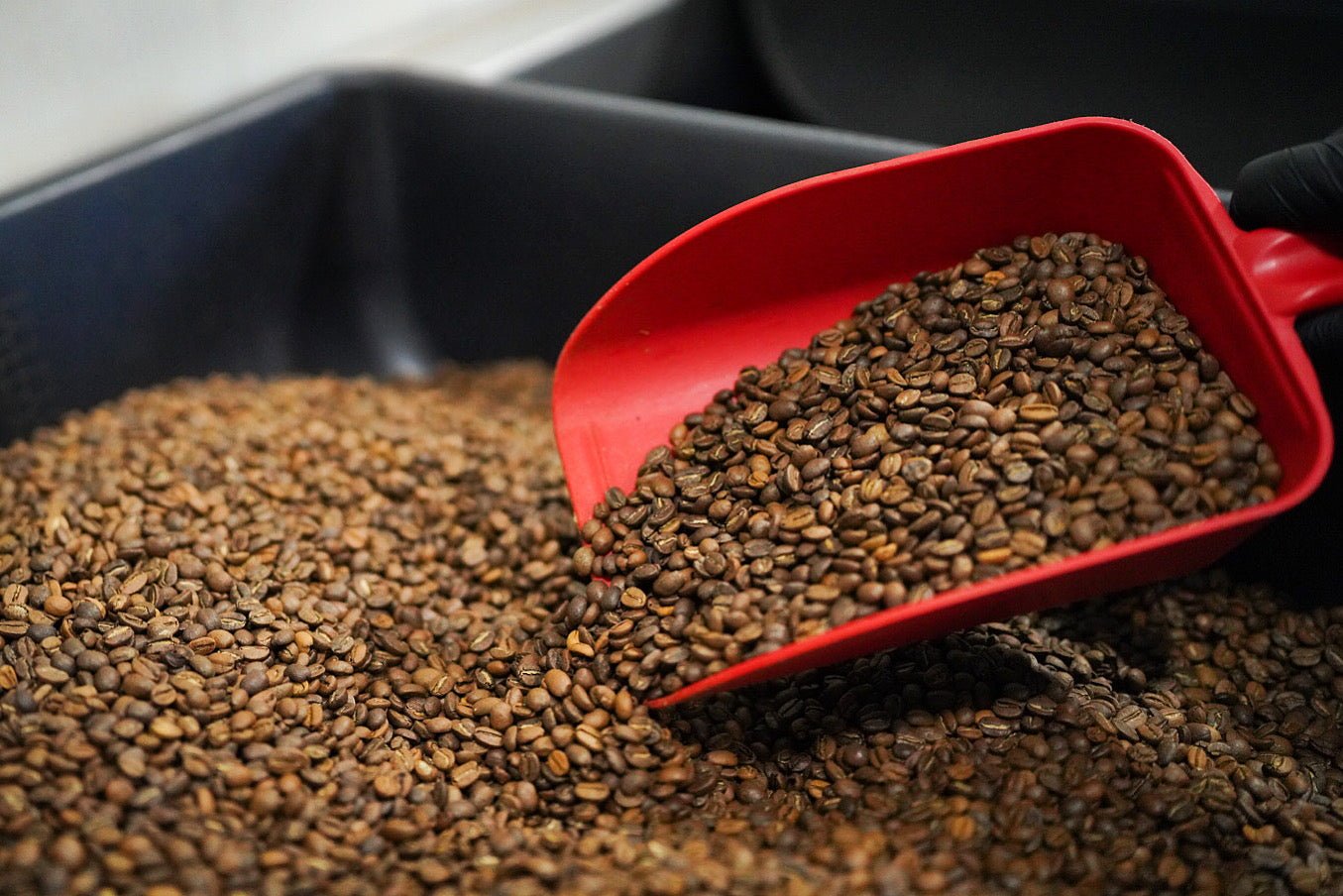Experience the Rich, Smooth, and Satisfying Taste of Decaf Coffee Without Compromising on Flavor
Decaffeinated coffee often gets a bad rap, with many coffee drinkers believing that it lacks the flavor and complexity of its caffeinated counterpart. However, the best-tasting decaf coffee can be just as delicious and satisfying as regular coffee, especially when it comes from a dedicated specialty coffee roaster like US Roast.
In this article, we'll explore the factors that contribute to the taste and quality of decaffeinated coffee and discuss why US Roast's decaf coffee stands out as the best in the industry. With a commitment to exceptional flavor, sustainability, and innovation, US Roast delivers an unparalleled decaf coffee experience that will delight even the most discerning palate.
1. The Decaffeination Process:
The taste and quality of decaf coffee are largely determined by the decaffeination process used. There are several methods of removing caffeine from coffee beans, but not all of them preserve the beans' natural flavors and aromas. Some common decaffeination methods include:
- Swiss Water Process: This chemical-free process involves immersing the coffee beans in hot water to extract the caffeine, then passing the water through a carbon filter to remove the caffeine molecules. The beans are then reintroduced to the water, which allows them to reabsorb the flavor compounds. This method is widely regarded as one of the best for preserving the beans' original taste and complexity.
- Carbon Dioxide Process: In this method, coffee beans are exposed to pressurized liquid carbon dioxide, which bonds with the caffeine molecules and extracts them from the beans. The carbon dioxide is then evaporated, leaving behind decaffeinated coffee beans with their flavor and aroma compounds largely intact.
US Roast is committed to using the Swiss Water Process for their decaffeinated coffee, as it offers the most effective and gentle method for preserving the beans' natural flavors and aromas. By choosing US Roast's decaf coffee, you can enjoy a rich and satisfying cup without compromising on taste or quality. Explore their selection of decaf coffee [here](https://usroast.com/collections/decaf-coffee).
2. Bean Selection and Roasting:
Just as with regular coffee, the quality of decaf coffee begins with the selection of high-quality beans. US Roast is dedicated to sourcing the finest beans from around the world, ensuring that their decaf coffee is made from beans with exceptional taste and quality.
Once the beans have been decaffeinated, US Roast's expert roasters carefully roast them to perfection, developing the flavors and aromas that define their delicious decaf coffee. By using state-of-the-art equipment and time-tested techniques, US Roast ensures that their decaf coffee boasts a full-bodied flavor and a smooth, balanced finish.
3. Brewing Methods for Decaf Coffee:
The brewing method used can have a significant impact on the taste and quality of decaf coffee. Some popular brewing methods for decaf coffee include:
- Pour-over: The pour-over method involves slowly pouring hot water over coffee grounds in a filter, allowing the coffee to drip into a cup or carafe. This method results in a clean, bright, and nuanced cup of decaf coffee.
- French press: The French press is a simple and efficient brewing method that involves steeping coarsely ground coffee in hot water before pressing the grounds through a fine mesh filter. This method produces a rich, full-bodied decaf coffee with a bold flavor profile.
- AeroPress: The AeroPress is a compact, portable brewing device that uses air pressure to force hot water through coffee grounds , resulting in a smooth and concentrated decaf coffee.
US Roast's decaf beans are versatile and suitable for any brewing method, allowing coffee enthusiasts to enjoy the perfect decaf coffee, regardless of their preferred brewing technique.
4. The Role of Water Quality and Temperature:
The quality and temperature of the water used in the brewing process can significantly affect the taste of decaf coffee. Using clean, filtered water free of impurities and minerals is essential for achieving a smooth, balanced cup of decaf coffee. Additionally, brewing with water at the optimal temperature (between 195°F and 205°F) ensures that the coffee's flavors and aromas are extracted properly.
5. The Impact of Grind Size and Freshness:
Grinding coffee beans immediately before brewing is crucial for preserving the beans' freshness and unlocking their full flavor potential. The grind size should be adjusted based on the brewing method used, as different methods require different grind sizes for optimal extraction. For example, a pour-over method typically calls for a medium-fine grind, while a French press requires a coarser grind.
US Roast recommends grinding their decaf beans just before brewing to ensure that you experience the full spectrum of flavors and aromas in your cup of decaf coffee. By following this simple guideline, you'll enjoy a consistently delicious and fresh-tasting decaf coffee every time.
The best-tasting decaf coffee is the result of a combination of factors, including a gentle and effective decaffeination process, high-quality beans, expert roasting techniques, precise brewing methods, and attention to detail in the preparation process. US Roast's commitment to using the Swiss Water Process, their dedication to sourcing the finest beans, and their meticulous roasting process set them apart in the world of decaffeinated coffee.
By choosing US Roast for your decaf coffee needs, you can enjoy the confidence that comes with knowing you're experiencing the best the industry has to offer. Whether you're a coffee connoisseur or simply a casual drinker, US Roast's unparalleled flavor and quality will elevate your decaf coffee experience to new heights. Visit their decaf coffee page to explore their impressive selection of decaffeinated coffee beans and discover your perfect cup of decaf coffee today.


